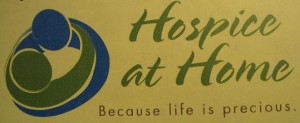Today when I woke up, my right eye was swollen, badly bloodshot and dripping with tears. This is the eye that was slammed to the pavement during my bike crash a couple of weeks ago, but it’s been healing at a good pace.
Now I’m going backwards. I prayed to our Great Physician, my heavenly husband, asking him what I should do. His assurance was that the tears were washing my eye, keeping it clean. “Just use clean tissues,” was the thought he gave me.
I left Jack at home as I biked around the neighborhood but stuffed both pockets full of clean tissues. The tears flew from my eye into my ear like raindrops off the windshield of a speeding car.
Feeling sorry for myself while running errands later, I was distracted and didn’t see the red-tailed squirrel bolt across the road in front of my car. “Oh no!” I said out loud, realizing I didn’t have time to brake. But the One who is healing my eye was also protecting his little squirrel. It ran under my car but came out the other side without breaking stride. “Thank you!” I shouted out loud. Jack wagged his tail as if to say, “You’re welcome.”
I’ve become a friend of sorts with a peppy red-tailed squirrel I frequently see outside my windows. The first time I noticed him was during a blizzard. With a foot of snow already on the ground and big flakes plopping out of the sky, Little Red was scurrying about the yard as if it was still autumn, burrowing his head through the snow in search of acorns. He had no competition, since all the other squirrels were nestled in their winter hideaways.
Little Red would nose-dig through the snow again and again, popping up repeatedly to check for danger. When he found an acorn, he’d scurry up the nearest tree, sit on a branch and chew on his find, stuffing the bits into his cheeks before heading back down for more.
Two things about Little Red were endearing: his perseverance despite big odds against him, and the way he used his furry tail. He’d figured out how to shelter himself from the snow storm as he chewed, by curling his tail up and over his body like a broad umbrella. I watched him go through the burrowing, retrieving, climbing, chewing, body-sheltering process again and again, admiring his pluck.
Today when my car went over the squirrel, I was sure it was Little Red. If I’d felt a bump, I would’ve pulled over, retrieved that mangled little body and conducted a full-blown funeral service to the tune of a thousand tears. Death is awful, more so now than ever, even the death of a little neighborhood squirrel.
Although I’d been feeling sorry for myself with my swollen, bloodshot eye, after Little Red’s victory on the road I felt better. And the Protector (the squirrel’s and mine) encouraged me further during a second bike ride later in the day. Little Red appeared fifty yards away, romping around on a sunny spring afternoon and accompanying me for most of my ride.
“Are not two sparrows [or squirrels] sold for a penny? Yet not one of them will fall to the ground [or be run over] apart from the will of your Father.” (Matthew 10:29-30a)



